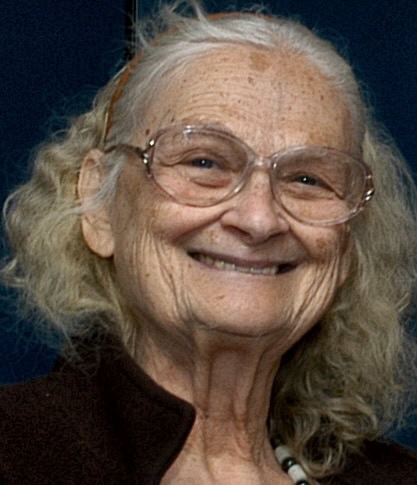Historian Gwendolyn Midlo Hall died in Guanajuato, Mexico, on August 29, 2022. She was 93.

Courtesy Haywood Hall
Easily one of the most influential historians of her generation, Hall changed the landscape of African American history and the history of slavery in the Americas. When her book Africans in Colonial Louisiana: The Development of Afro-Creole Culture in the Eighteenth Century (Louisiana State Univ. Press) appeared in 1992, it opened exciting avenues of inquiry for scholars of the Atlantic world, including historians, ethnographers, and anthropologists. With her research findings, she created the database Afro-Louisiana History and Genealogy 1719 to 1820, with information on more than 100,000 enslaved Africans, Indigenous people, and their descendants. Many of the documents Hall used came from archives few historians had explored: the rural courthouses of southern Louisiana, containing some of the richest evidence of Africans and their descendants anywhere in the Americas.
Born in New Orleans in 1929, Hall was exposed early to the fight for racial justice through the work of her father. A civil rights attorney and a Jewish immigrant, Herman L. Midlo was often the only lawyer in the city willing to take the cases of African American clients. As a young white woman, Hall became a member of the interracial New Orleans Youth Council and the Southern Negro Youth Congress. She married Black Marxist and civil rights activist Harry Haywood in 1956, and the two organized and wrote together and lived in Mexico and New York City. They lived separately after 1964 but remained married until his death in 1985.
Hall viewed her work as a historian as a powerful tool against racism. She had been doing legal research for her father when she first realized the evidence Louisiana court records contained: the names, ethnicities, and nationalities of enslaved Africans. After earning a master’s degree in history and anthropology from Universidad Nacional Autónoma de México and in 1970 a doctorate from the University of Michigan, Hall taught at Rutgers University for over two decades.
With its French and Spanish colonial history, Louisiana still seemed an aberration to many scholars of US history when Hall began her research. But her work demonstrated Louisiana’s critical importance to the history of the Atlantic World. To know the true significance of Hall’s work, however, is to talk to descendants who live in and around New Orleans. They call Africans in Colonial Louisiana “the purple book” because of its distinctive cover. In the era before digitized census records and ship manifests, dog-eared copies of that book made African American genealogy seem possible for many people for the first time. And it highlighted the central roles African people played in Louisiana’s development. Her work also inspired New Orleans–born musician Wynton Marsalis’s Pulitzer Prize–winning jazz piece, Blood on the Fields.
Hall soon realized that the details of the lives she uncovered, and the patterns that emerged from the vast collection she had assembled, could only be discoverable in digital form. When she released the database, it was front-page news in the New York Times—above and below the fold. The names of the people she recovered from the archives are also engraved in the Allées Gwendolyn Midlo Hall at Whitney Plantation in Edgard, Louisiana. Hall’s work was foundational to Whitney and its mission to tell the story of slavery from the perspective of the enslaved.
A pioneer in the digital history of slavery, Hall was also attuned to the ethics of that work. Asked in 2015 about her decision to make a database, she recalled her male colleagues in the field were skeptical: “What do you want to do that for? We’re just interested in statistics.” Hall told them, “I’m interested in statistics too, but I’m also interested in human beings and what they were like . . . what their names were and how they were related to each other. They said, ‘That’ll slow you down,’ and I said, ‘Well, it’ll just have to slow me down.’”
Hall spent her last years in Guanajuato, Mexico, with her son and his family. Gwendolyn Midlo Hall is survived by her son, Haywood Hall; her daughter, Rebecca Hall of Utah; and four grandchildren. Her ashes are scattered at the Allées at Whitney Plantation. The AHA honored Hall with a posthumous Award for Scholarly Distinction in 2023.
Editor’s Note: This essay originally stated that Gwendolyn Midlo Hall earned her doctorate from Rutgers University. In fact, she earned her doctorate from the University of Michigan, then taught at Rutgers University for over two decades.
Mary Niall Mitchell
Midlo Center for New Orleans Studies, University of New Orleans
This work is licensed under a Creative Commons Attribution-NonCommercial-NoDerivatives 4.0 International License. Attribution must provide author name, article title, Perspectives on History, date of publication, and a link to this page. This license applies only to the article, not to text or images used here by permission.